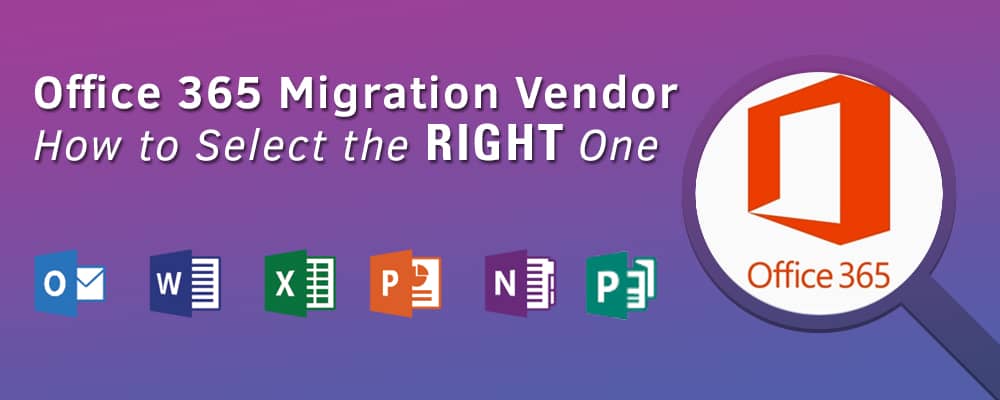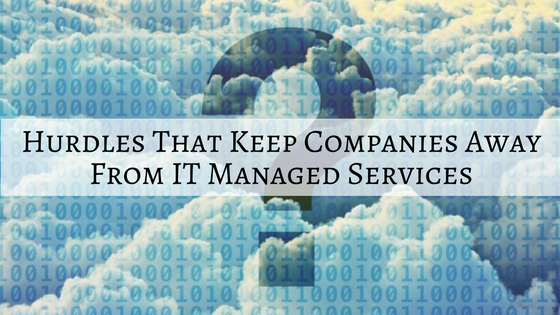Why MSPs and VARS are Fearing Cloud Computing?

Futurism Technologies
December 8, 2016 - 5.2K
5 Min Read
Managing a business is not easy. You might have figured out your target audience, markets, and have been selling them successfully. But suddenly, a new trend emerges and threatens to uproot your business.
Today, many Managed Service Providers (MSPs) and Value-added Resellers (VARs) are in the same situation. They are struggling to maintain their profits under the emerging trend – Cloud Computing.
(Read about “ADOPTING CLOUD TECHNOLOGY TO HELP YOUR E-COMMERCE BUSINESS TO SCALE AND HANDLE GLOBAL EXPANSION“)
Who are the beneficiaries of cloud computing? Of course, Small Business Enterprises (SMEs), whom most VARs and MSPs consider as their customers. Over the years, SMEs are being warned by IT experts to migrate their business to the cloud model, if they wish to survive in the changing IT landscape. This is why VARs and MSPs are considering cloud computing as a serious threat. Read below to find answers.
Cloud Computing Is it something that MSPs and VARs Need to Worry About?
If you are hearing cloud computing for the first time, lets give you a brief idea about it. The term refers to a service where you are allowed to manage your data on a third party platform. High-speed Internet is the only requirement for accessing your files.
By now, small and large MSPs and VARs have started realizing that they cannot compete with big public cloud companies on various price benefits that they offer to customers. These large-scale public cloud providers exploit economies of scale to their benefits. As a result, they are able to grow their customer base, and serve their customers more efficiently.
Following are some features that help cloud service providers distinguish themselves from MSPs and VARs
• Assistance in Establishing Global Footprint: Earlier, businesses were keen to serve their local customers. Today, they consider the whole globe as a marketplace. They are achieving it by putting up a website, and investing in digital media campaigns. By expanding their business on a global level, they are also ready to travel different places, and are eager to serve their customers 24/7. This means that they need to access their files and data 24/7. Although many MSPs provide 24/7 monitoring, businesses may not be able to access their data throughout the day. However, cloud platform allows them to store their data and access it anytime they want. This will help them collaborate and coordinate with their team at their will. The cloud also helps remotely working teams to access their data whenever they want.
• Flexibility: The cloud computing offers immense flexibility to users to choose their service pattern. They can add or delete some features or control their services the way they want. However, most MSPs and VARs follow a specific service pattern, which dont allow much flexibility. This flexibility is also available in terms of costs because customers only need to pay for services they avail.
• Helps Reduce Carbon Footprint: The cloud computing allows companies to reduce their carbon footprint by downsizing the number of data centers. This means they dont need to maintain servers of their own, hence they can save on the software costs, as well as cut down a number of staff required to manage internal IT infrastructure. These facilities allow businesses to reduce their carbon footprint, IT management costs, without impacting their IT capabilities.
• Robust Disaster Recovery: Most MSPs and VARS today follow disaster recovery practices, which allow them to help their customers during emergencies. However, cloud computing allows clients to take advantage of robust disaster recovery services without any upfront investment. The businesses can easily recover their documents, save time, as well as use third-party expertise to secure their data.
• Freedom from Capital Expenditure: Cloud computing eliminates the cost of software and hardware. User only needs to subscribe every month and enjoy the services. This subscription model is affordable too. They dont have to spend time with installations, setups, or maintenance services because everything is handled by a cloud service provider.
The above information will definitely help MSPs and VARS to understand how they can design their services to provide maximum benefits to their customers. The emergence of cloud computing is similar to other technology trends that have developed over the decades. There are many MSPs who have already started migrating to cloud service model, and there are many others who are reluctant to adopt them. Hopefully, the information on cloud benefits will inspire reluctant ones to adopt this strategy before their business faces a serious threat. You can also read about “THE WHYS AND WHATS OF CLOUD COMPUTING VS. MANAGED SERVICES“
Subscribe Now!
TRENDING POSTS
-
The Role of Smart Maritime IoT Solutions in Enhancing Maritime Safety
-
Data Integration Unlocked: From Silos to Strategy for Competitive Success
-
Navigating the Shadows: Understanding Zero-Click Attacks in the Digital Age
-
AI Reimagined: Crafting Next-Gen AI Apps with Expert Fine-Tuning
-
Explore Next-Gen Digital Solutions with Futurism at MWC 2024
-
Futurism Unleashes the Technology of Tomorrow at MWC Barcelona 2024
-
Futurism AI: Turning Ideas into Apps at Lightning-Fast Speed
-
Accelerate AI Across Your Enterprise With Futurism AI
-
Futurism to Address the Biggest Security Challenges at RSS 2022
-
Futurism at SelectUSA 2022: Steering the Next Wave of Businesses
-
Futurism to Uplift the MSP Business Community at the MSP Expo 2022
-
Futurism Sets Out to Address the Biggest Security Challenges at the RSA Conference 2022
-
5 Ways to Prepare Your Business for Digital Transformation
-
4 Ways To Win at Digital Transformation on a Shoestring Budget
-
Futurism: Empowering MSPs at the Channel Partners Conference & Expo 2022
-
Why AI in Digital Marketing is the Next Big Thing?
-
Futurism brings ‘Mobile First Digital Transformation’ to the fore at MWC Barcelona 2022
-
Cybersecurity for Rural Hospitals: How can Rural Hospitals become Cyber Smart?
-
Futurism Empowers Rural Health Care Community at the AHA Rural Health Care Leadership Conference
-
The Biggest Problem With Cybersecurity In Healthcare Sector, And How IBM QRadar Can Fix It?
-
How IBM MaaS360 is Revolutionizing Endpoint Security in the Healthcare Industry?
-
Futurism to Present its MSP Partner Program at the Channel Partners Conference & Expo 2021
-
EndPoint Security in Healthcare Matters and IBM MaaS360 Can Help
-
How AI Will Enable Faster Adaptation of Digital Transformation
-
How Is Digital Modernization Important In Supplier On-Boarding?
-
Top 10 Email Marketing Tips for This Holiday Season
-
Benefits of using ERP Software for Energy and Gas Industries





